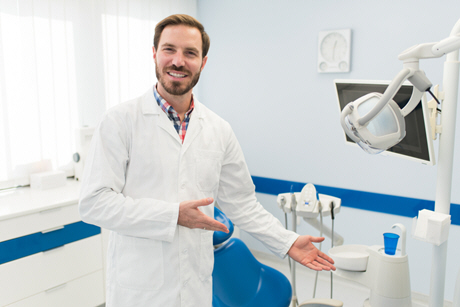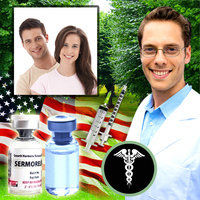Introduction to Secondary Hypogonadism
Secondary hypogonadism, a condition where the body does not produce enough testosterone due to a problem with the pituitary gland or hypothalamus, is increasingly recognized as a significant health concern among American males. Unlike primary hypogonadism, which stems from a failure of the testes, secondary hypogonadism arises from a dysfunction in the brain's signaling to the testes. This condition can lead to a myriad of symptoms, including decreased libido, erectile dysfunction, fatigue, and mood disturbances, which can profoundly impact quality of life.
The Prevalence Among American Males
In the United States, secondary hypogonadism is more common than many might realize. Studies suggest that up to 12% of American men may experience some form of hypogonadism, with a significant portion attributed to the secondary type. Factors such as obesity, chronic illnesses, and certain medications can increase the risk of developing this condition. Given its prevalence, understanding and addressing secondary hypogonadism is crucial for maintaining the health and well-being of American males.
Symptoms and Impact on Quality of Life
The symptoms of secondary hypogonadism can be subtle and often mistaken for other conditions, leading to underdiagnosis and delayed treatment. Common signs include reduced sexual desire, difficulty achieving or maintaining an erection, decreased muscle mass, increased body fat, and emotional changes such as depression or irritability. These symptoms not only affect physical health but also have a profound impact on mental health and overall quality of life. Recognizing these signs early and seeking appropriate medical evaluation is essential for effective management.
The Importance of Hormonal Testing
Hormonal testing plays a pivotal role in diagnosing secondary hypogonadism. A comprehensive evaluation typically includes measuring serum testosterone levels, as well as luteinizing hormone (LH) and follicle-stimulating hormone (FSH) levels. Low testosterone levels in conjunction with low or normal LH and FSH levels are indicative of secondary hypogonadism. Early detection through hormonal testing can lead to timely intervention, which is crucial for preventing long-term complications such as osteoporosis, cardiovascular disease, and metabolic syndrome.
Treatment Options and Management
Once diagnosed, treatment for secondary hypogonadism often involves testosterone replacement therapy (TRT). TRT can be administered through various methods, including injections, gels, patches, or pellets, and is tailored to the individual's needs and lifestyle. In addition to TRT, addressing underlying causes such as obesity or medication side effects is essential for comprehensive management. Regular follow-up and monitoring are necessary to adjust treatment and ensure optimal outcomes.
The Role of Lifestyle Modifications
Lifestyle modifications can also play a significant role in managing secondary hypogonadism. Regular exercise, a balanced diet, and weight management can help improve testosterone levels and overall health. Additionally, reducing stress and ensuring adequate sleep are important factors in maintaining hormonal balance. American males should be encouraged to adopt these healthy habits as part of their overall approach to managing secondary hypogonadism.
Conclusion: A Call to Action for American Males
Secondary hypogonadism is a condition that demands attention and action from American males. By understanding the symptoms, undergoing hormonal testing, and pursuing appropriate treatment and lifestyle changes, men can significantly improve their health and quality of life. Healthcare providers play a crucial role in educating and supporting patients through this process. As awareness and understanding of secondary hypogonadism grow, so too will the ability of American males to lead healthier, more fulfilling lives.
Contact Us For A Fast And Professional Response

- Secondary Hypogonadism: Cardiovascular Risks and Management Strategies for American Men [Last Updated On: March 5th, 2025] [Originally Added On: March 5th, 2025]
- Secondary Hypogonadism and Sleep: Impacts and Management Strategies for American Men [Last Updated On: March 17th, 2025] [Originally Added On: March 17th, 2025]
- Secondary Hypogonadism and Energy: Impact and Management in American Males [Last Updated On: March 18th, 2025] [Originally Added On: March 18th, 2025]
- Genetic Factors in Secondary Hypogonadism: Impact and Implications for American Males [Last Updated On: March 19th, 2025] [Originally Added On: March 19th, 2025]
- Secondary Hypogonadism in American Men: Symptoms, Risks, and Management Strategies [Last Updated On: March 19th, 2025] [Originally Added On: March 19th, 2025]
- Chronic Stress and Secondary Hypogonadism in American Males: A Comprehensive Overview [Last Updated On: March 20th, 2025] [Originally Added On: March 20th, 2025]
- Secondary Hypogonadism: Impacts on Body Composition in American Men [Last Updated On: March 20th, 2025] [Originally Added On: March 20th, 2025]
- Secondary Hypogonadism's Impact on Prostate Health: Management and Monitoring Strategies [Last Updated On: March 20th, 2025] [Originally Added On: March 20th, 2025]
- Secondary Hypogonadism: Impact on Cognitive Health and Management Strategies [Last Updated On: March 20th, 2025] [Originally Added On: March 20th, 2025]
- Exercise as a Key Strategy in Managing Secondary Hypogonadism in American Males [Last Updated On: March 21st, 2025] [Originally Added On: March 21st, 2025]
- Managing Secondary Hypogonadism: The Vital Role of Comprehensive Support Systems [Last Updated On: March 21st, 2025] [Originally Added On: March 21st, 2025]
- Psychological Impacts of Secondary Hypogonadism: Mood, Self-Esteem, and Cognitive Effects [Last Updated On: March 22nd, 2025] [Originally Added On: March 22nd, 2025]
- Secondary Hypogonadism in American Males: Impacts and Management of Hair Loss [Last Updated On: March 22nd, 2025] [Originally Added On: March 22nd, 2025]
- Environmental Factors and Preventive Measures for Secondary Hypogonadism in American Men [Last Updated On: March 22nd, 2025] [Originally Added On: March 22nd, 2025]
- Secondary Hypogonadism in American Males: Causes, Symptoms, and Management Strategies [Last Updated On: March 22nd, 2025] [Originally Added On: March 22nd, 2025]
- Secondary Hypogonadism: Impacts on Skin Health and Treatment Options in American Men [Last Updated On: March 23rd, 2025] [Originally Added On: March 23rd, 2025]
- Secondary Hypogonadism: Impact on Physical Performance in American Men [Last Updated On: March 23rd, 2025] [Originally Added On: March 23rd, 2025]
- Secondary Hypogonadism and Anemia: Understanding the Link and Managing Health [Last Updated On: March 24th, 2025] [Originally Added On: March 24th, 2025]
- Secondary Hypogonadism and Mood Disorders: Exploring Links and Treatment in American Men [Last Updated On: March 24th, 2025] [Originally Added On: March 24th, 2025]
- Secondary Hypogonadism in American Males: Impact and Importance of Mental Health Support [Last Updated On: March 24th, 2025] [Originally Added On: March 24th, 2025]
- Secondary Hypogonadism in American Men: Symptoms, Diagnosis, and Management Strategies [Last Updated On: March 24th, 2025] [Originally Added On: March 24th, 2025]
- Secondary Hypogonadism and Heart Disease: Risks, Symptoms, and Management in American Males [Last Updated On: March 24th, 2025] [Originally Added On: March 24th, 2025]
- Lifestyle Impact on Secondary Hypogonadism in American Males: Prevention and Management [Last Updated On: March 25th, 2025] [Originally Added On: March 25th, 2025]
- Secondary Hypogonadism: Understanding Its Profound Social Impact on American Men [Last Updated On: March 25th, 2025] [Originally Added On: March 25th, 2025]
- Secondary Hypogonadism: Impact on Libido and Treatment Options for American Males [Last Updated On: March 25th, 2025] [Originally Added On: March 25th, 2025]
- Secondary Hypogonadism and Diabetes: Insights and Management for American Men [Last Updated On: March 25th, 2025] [Originally Added On: March 25th, 2025]
- Secondary Hypogonadism: Impacts on Kidney Function and Management Strategies for American Males [Last Updated On: March 25th, 2025] [Originally Added On: March 25th, 2025]
- Sleep Disorders and Secondary Hypogonadism: Mechanisms, Impacts, and Management in American Men [Last Updated On: March 25th, 2025] [Originally Added On: March 25th, 2025]
- Secondary Hypogonadism's Impact on Muscle Strength in American Men: Diagnosis and Treatment [Last Updated On: March 25th, 2025] [Originally Added On: March 25th, 2025]
- Managing Secondary Hypogonadism: Symptoms, Diagnosis, and Treatment Strategies for American Males [Last Updated On: March 25th, 2025] [Originally Added On: March 25th, 2025]
- Exploring Alternatives to TRT for Secondary Hypogonadism Management [Last Updated On: March 25th, 2025] [Originally Added On: March 25th, 2025]
- Secondary Hypogonadism's Impact on Immune Function in American Men [Last Updated On: March 25th, 2025] [Originally Added On: March 25th, 2025]
- Emotional Impact of Secondary Hypogonadism on American Men: Symptoms and Solutions [Last Updated On: March 26th, 2025] [Originally Added On: March 26th, 2025]
- Understanding and Managing Secondary Hypogonadism in American Males [Last Updated On: March 26th, 2025] [Originally Added On: March 26th, 2025]
- Secondary Hypogonadism: Impacts and Management in American Men [Last Updated On: March 26th, 2025] [Originally Added On: March 26th, 2025]
- Exercise as a Key Strategy in Managing Secondary Hypogonadism in American Men [Last Updated On: March 26th, 2025] [Originally Added On: March 26th, 2025]
- Secondary Hypogonadism's Impact on Fat Distribution in American Men [Last Updated On: March 26th, 2025] [Originally Added On: March 26th, 2025]
- Understanding and Managing Secondary Hypogonadism in American Males: A Comprehensive Guide [Last Updated On: March 26th, 2025] [Originally Added On: March 26th, 2025]
- Secondary Hypogonadism's Impact on Bone Density in American Men: Causes, Effects, and Management [Last Updated On: March 26th, 2025] [Originally Added On: March 26th, 2025]
- Secondary Hypogonadism and Autoimmune Diseases: Insights and Implications for American Men [Last Updated On: March 26th, 2025] [Originally Added On: March 26th, 2025]
- Secondary Hypogonadism: Impacts and Management Strategies for American Men [Last Updated On: March 26th, 2025] [Originally Added On: March 26th, 2025]
- Secondary Hypogonadism's Impact on Liver Health in American Males [Last Updated On: March 27th, 2025] [Originally Added On: March 27th, 2025]
- Thyroid Function's Role in Secondary Hypogonadism Among American Males: Insights and Management [Last Updated On: March 27th, 2025] [Originally Added On: March 27th, 2025]
- Nutrition's Role in Managing Secondary Hypogonadism in American Males [Last Updated On: March 28th, 2025] [Originally Added On: March 28th, 2025]
- Secondary Hypogonadism: Causes, Symptoms, and Treatment for American Males [Last Updated On: March 28th, 2025] [Originally Added On: March 28th, 2025]
- Managing Fatigue in American Males with Secondary Hypogonadism: A Comprehensive Approach [Last Updated On: March 29th, 2025] [Originally Added On: March 29th, 2025]
- Secondary Hypogonadism's Impact on Mood in American Men: Causes, Effects, and Management [Last Updated On: March 29th, 2025] [Originally Added On: March 29th, 2025]
- Secondary Hypogonadism's Impact on Cognitive Function in American Men: A Review [Last Updated On: March 29th, 2025] [Originally Added On: March 29th, 2025]
- Secondary Hypogonadism's Psychological Impact on American Men: Diagnosis, Treatment, and Support [Last Updated On: March 29th, 2025] [Originally Added On: March 29th, 2025]
- Secondary Hypogonadism in American Males: Causes, Diagnosis, and Management Strategies [Last Updated On: March 30th, 2025] [Originally Added On: March 30th, 2025]
- Chronic Stress and Secondary Hypogonadism: Management Strategies for American Males [Last Updated On: March 30th, 2025] [Originally Added On: March 30th, 2025]
- Secondary Hypogonadism: Impact on Energy, Vitality, and Quality of Life in American Men [Last Updated On: April 1st, 2025] [Originally Added On: April 1st, 2025]
- Secondary Hypogonadism in American Males: Weight Management and Holistic Health Strategies [Last Updated On: April 1st, 2025] [Originally Added On: April 1st, 2025]
- Secondary Hypogonadism in American Males: Causes, Diagnosis, and Hormonal Therapy [Last Updated On: April 3rd, 2025] [Originally Added On: April 3rd, 2025]
- Managing Secondary Hypogonadism: Diet's Role in Boosting Testosterone for American Men [Last Updated On: April 5th, 2025] [Originally Added On: April 5th, 2025]
- Secondary Hypogonadism: Impacts on Intimate Relationships and Management Strategies [Last Updated On: April 5th, 2025] [Originally Added On: April 5th, 2025]
- Secondary Hypogonadism: Symptoms, Diagnosis, and Treatment for American Males [Last Updated On: April 5th, 2025] [Originally Added On: April 5th, 2025]
- Secondary Hypogonadism: Holistic Treatment for Improved Health in American Males [Last Updated On: April 7th, 2025] [Originally Added On: April 7th, 2025]
- Understanding Secondary Hypogonadism: Symptoms, Diagnosis, and Management in American Males [Last Updated On: April 8th, 2025] [Originally Added On: April 8th, 2025]
- Community Support Enhances Life for Men with Secondary Hypogonadism [Last Updated On: April 8th, 2025] [Originally Added On: April 8th, 2025]
- Sleep Deprivation and Secondary Hypogonadism in American Males: A Critical Connection [Last Updated On: April 9th, 2025] [Originally Added On: April 9th, 2025]
- Secondary Hypogonadism's Impact on Mental Clarity in American Men [Last Updated On: April 9th, 2025] [Originally Added On: April 9th, 2025]
- Secondary Hypogonadism: Symptoms, Impacts, and Management Strategies for American Men [Last Updated On: April 11th, 2025] [Originally Added On: April 11th, 2025]
- Secondary Hypogonadism's Impact on Emotional Resilience in American Men [Last Updated On: April 12th, 2025] [Originally Added On: April 12th, 2025]
- Secondary Hypogonadism: Impacts on Mental Health and Comprehensive Care for American Males [Last Updated On: April 13th, 2025] [Originally Added On: April 13th, 2025]
- Understanding and Managing Secondary Hypogonadism in American Men: Symptoms, Causes, and Treatments [Last Updated On: April 13th, 2025] [Originally Added On: April 13th, 2025]
- Secondary Hypogonadism in American Males: Diagnosis, Treatment, and Multidisciplinary Care [Last Updated On: April 14th, 2025] [Originally Added On: April 14th, 2025]
- Secondary Hypogonadism: Impacts and Management Strategies for American Men's Vitality [Last Updated On: April 16th, 2025] [Originally Added On: April 16th, 2025]
- Secondary Hypogonadism in American Males: Symptoms, Causes, and Management Strategies [Last Updated On: April 16th, 2025] [Originally Added On: April 16th, 2025]
- Secondary Hypogonadism: Importance of Regular Check-ups for American Males' Health [Last Updated On: April 16th, 2025] [Originally Added On: April 16th, 2025]
- Understanding and Managing Secondary Hypogonadism in American Males: Causes, Symptoms, and Treatments [Last Updated On: April 16th, 2025] [Originally Added On: April 16th, 2025]
- Secondary Hypogonadism: Impacts on Health and Importance of Early Intervention in American Men [Last Updated On: April 17th, 2025] [Originally Added On: April 17th, 2025]
- Secondary Hypogonadism: Emotional Impact and Management Strategies for American Men [Last Updated On: April 18th, 2025] [Originally Added On: April 18th, 2025]
- Managing Secondary Hypogonadism: Lifestyle Strategies for American Males [Last Updated On: April 19th, 2025] [Originally Added On: April 19th, 2025]

















